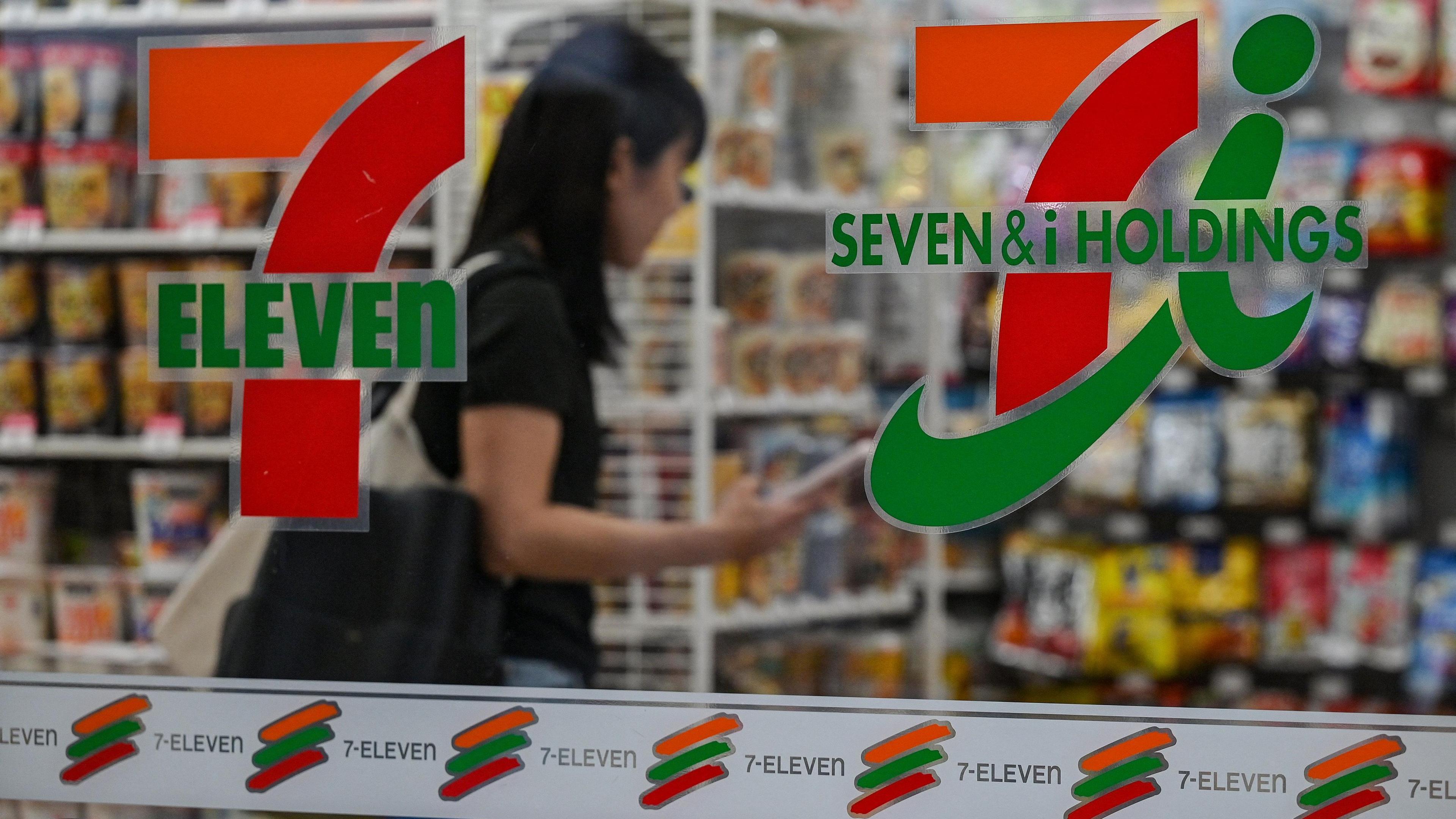7-Eleven shares jump as rival makes new buyout offer

Alimentation Couche-Tard has reportedly raised its buyout offer by around 20%
- Published
Shares in the owner of convenience store giant 7-Eleven jumped on Wednesday after it received a new takeover offer from Canadian rival Alimentation Couche-Tard.
Japan's Seven & i Holdings confirmed the new approach but did not reveal any new details.
The announcement came after Bloomberg News reported that the new offer valued the firm at more than $47bn (┬г36bn) - around 20% higher than previously.
In September, Seven & i rejected a $38bn approach from Couche-Tard, saying it grossly undervalued the firm and that any potential takeover would face major regulatory hurdles.
Seven & i shares ended the day 4.7% higher in Tokyo after initially jumping by 9.5%.
The new offer was reportedly submitted to Seven & i on 19 September and no discussions between the two sides have taken place since.
Seven & i said it "will continue to act in the best interest of its shareholders and other stakeholders."
After the previous offer was rejected, Seven & i was added by Japan's Finance Ministry to a list of businesses that are considered to be "core" to the country's national security.
The move, which is largely considered to have little impact on Couche-Tard's buyout attempt, forces prospective foreign investors in such Japanese companies to seek a government review.
A Japanese company of Seven & i's size has never been bought by a firm from overseas.
Historically, companies from Japan were more likely to buy foreign businesses.
Last year, the Japanese government issued new guidelines on mergers and acquisitions, which called on companies to not reject credible takeover offers without proper consideration.
7-Eleven is the world's biggest convenience store chain, with 85,000 outlets across 20 countries and territories.
If the deal went ahead, Couche-Tard's footprint in the US and Canada would more than double to about 20,000 sites and create a 100,000-strong global convenience store chain.